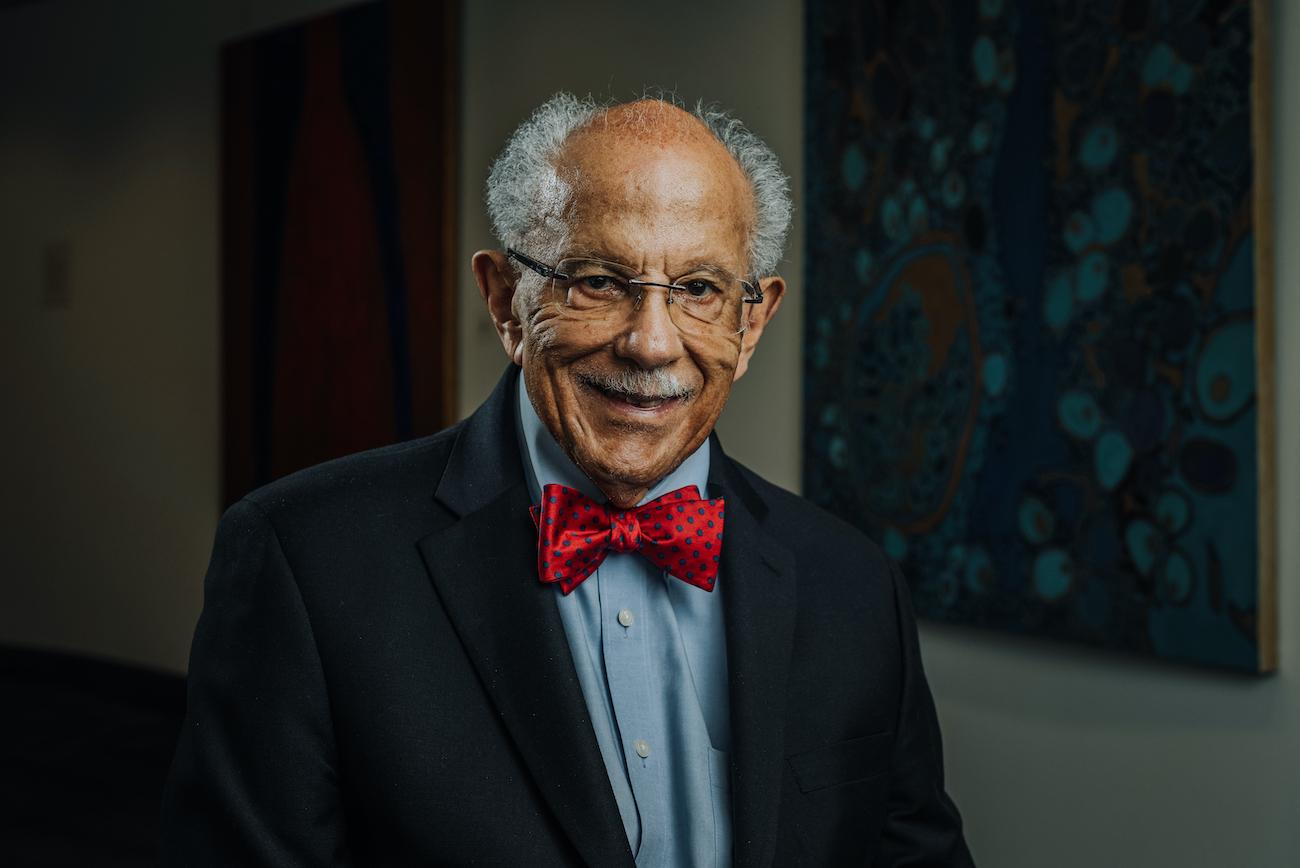The Black Climate Scientists and Scholars Changing the World
These six Black scientists and scholars have made indelible marks on the journey to climate justice.
Updated Aug. 18 2020, 2:26 p.m. ET
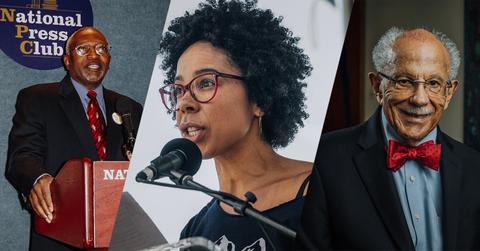
Environmentalism is intersectional — to effectively protect our planet and fight the climate crisis, we must also fight for the rights of marginalized groups around the world, especially those who are disproportionately impacted by the climate emergency. As young activist Leah Thomas puts it, “Intersectional environmentalism advocates for justice for people and the planet.”
That also means the environmental movement has so much to gain by listening to voices of color in the climate space. There are numerous brilliant Black scientists and scholars in the climate movement; we’ve highlighted just a few of them below, including quotes from each of them about the connections between climate justice and racial justice. This list is by no means exhaustive, but a starting point for learning about some of the Black scientists and scholars using climate science to make the world a better place.
Keep reading to learn about six Black scientists and scholars who have made indelible marks on the journey to climate justice.
Dr. Na'Taki Osborne Jelks
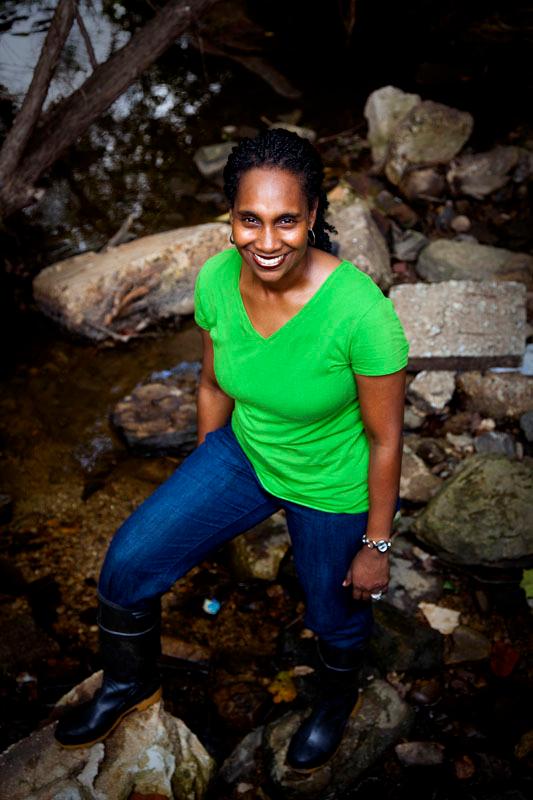
Dr. Na'Taki Osborne Jelks is the co-founder of the National Wildlife Federation’s Atlanta Earth Tomorrow Program, a multicultural program that engages urban youth in environmental and community-focused causes. She is also an Assistant Professor at Spelman College, and the board chairperson of the West Atlanta Watershed Alliance.
In 2014, the Obama administration awarded Dr. Jelks the White House Champions of Change Award for her work with youth, and in 2017, she received the 2017 Spelman College Local Community Service Award .
"The fights for climate justice and racial justice are connected because Black and other communities of color are often impacted first and worst by the effects of climate change," Dr. Jelks tells Green Matters exclusively in an email.
"Because climate justice focuses on addressing the root causes of climate change, it aligns well with the fight for racial justice," she continues. "Both require making systemic changes that are necessary to address unequal burdens that disproportionately disadvantage populations that are vulnerable due to effects of institutional racism and the associated challenges of poverty, pollution, food insecurity, high utility burdens, and inequitable access to resources that help communities thrive and scale up resourcefulness in the face of climate change."
To truly fight climate-related injustices, non-Black environmentalists must prioritize anti-racism efforts in every facet of their work, according to Dr. Jelks.
"Non-Black environmentalists can support the Black community and anti-racism in climate spaces by integrating the fight for racial justice into their climate activism and policy agendas. To continue to do otherwise is like placing a band-aid on a gaping wound," Dr. Jelks says. "The root causes of environmental and climate injustices as well as racism must be addressed or we can expect nothing more than to treat symptoms that won’t ever really go away — they will continue to manifest themselves to the detriment of oppressed peoples and the planet."
Dr. Ayana Elizabeth Johnson
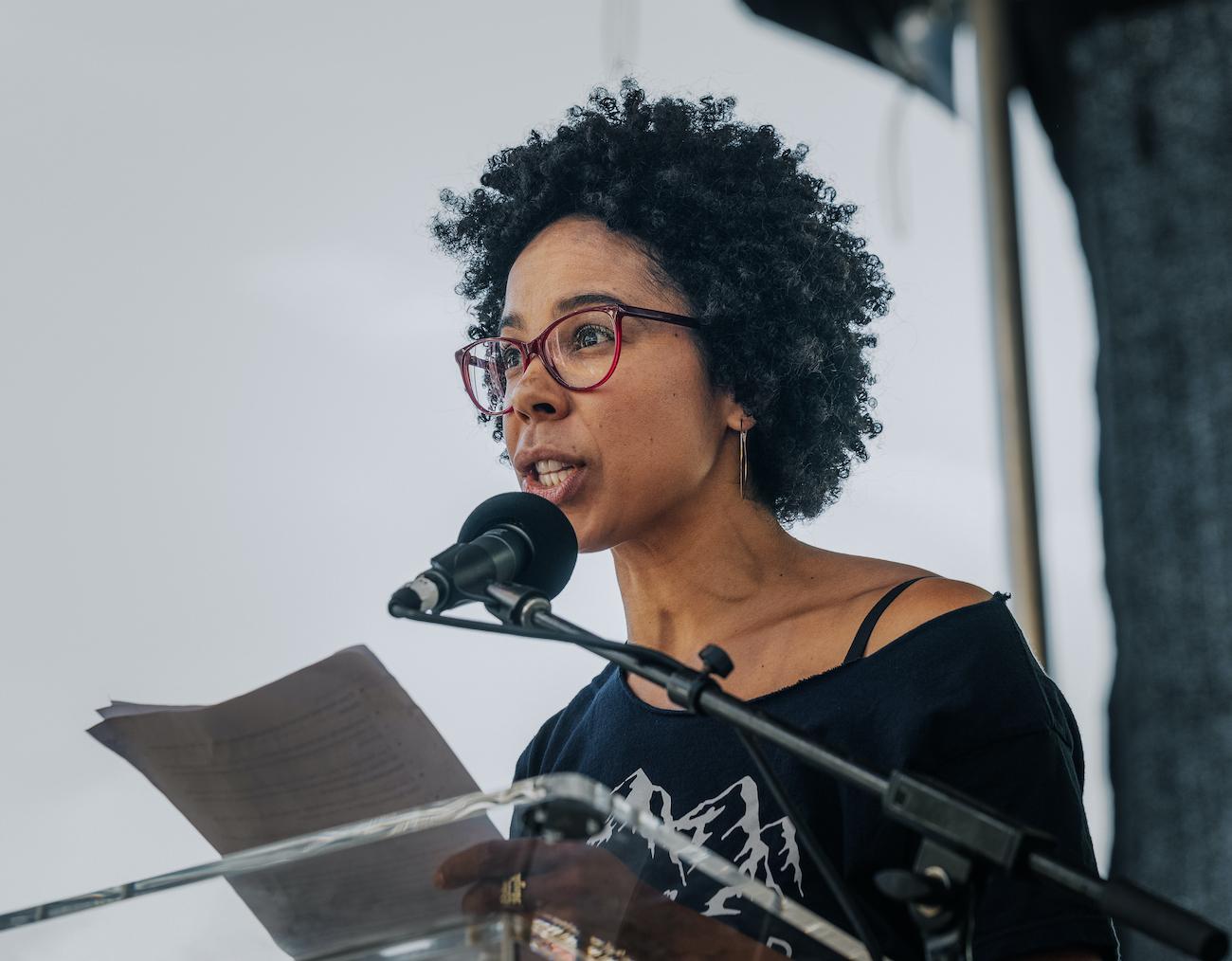
Dr. Ayana Elizabeth Johnson is a Brooklyn-based marine biologist, policy expert, and writer. She is founder and CEO of Ocean Collectiv, the founder of Urban Ocean Lab, and a co-creator of the Blue New Deal, which guides politicians on how to include the oceans in climate policies. She is also a former adjunct professor at New York University, and “the most influential marine biologist of our time” according to Outside Magazine.
Dr. Johnson recently penned an op-ed for The Washington Post titled “I’m a black climate expert. Racism derails our efforts to save the planet.” In the piece, she explained the ways that Black Americans are disproportionately affected by the climate crisis — as well as the ways racism is holding back environmental justice.
“Look, I would love to ignore racism and focus all my attention on climate. But I can’t. Because I am human. And I’m black. And ignoring racism won’t make it go away,” she wrote in the op-ed. “So, to white people who care about maintaining a habitable planet, I need you to become actively anti-racist. I need you to understand that our racial inequality crisis is intertwined with our climate crisis. If we don’t work on both, we will succeed at neither. I need you to step up. Please. Because I am exhausted.”
Dr. Warren Washington
In the 1960s, living legend Dr. Warren Washington helped develop the first atmospheric computer models that used physics to predict future states of the atmosphere, which were groundbreaking in helping humans understand the climate crisis, according to the National Center for Atmospheric Research (NCAR). He also served as a science advisor to five U.S. presidents — Jimmy Carter, Ronald Reagan, Bill Clinton, George W. Bush, and Barack Obama — which he wrote about in his autobiography, Odyssey in Climate Modeling, Global Warming, and Advising Five Presidents, among many other books.
In his autobiography, Dr. Washington reflected on his experience growing up in Oregon in the 1940s and 1950s. He recalled the civil rights he did not have due to Jim Crow laws, sharing a story of one time he witnessed police brutality against his friends in high school. He also recounted serving as the vice president of the Junior NAACP.
“Although I did not realize it at the time, it helped give me confidence that I could contribute to making a change,” he wrote in the book about his time with the Junior NAACP.
Dr. Washington has received some of the highest awards in the environmental space, including the 2019 Tyler Prize for Environmental Achievement, as well as a 2010 National Medal of Science, which President Obama awarded to him. He also helped develop both the Parallel Climate Model and the Community Earth System Model, which the Intergovernmental Panel on Climate Change (IPCC) used in a 2007 assessment, which clinched the team behind the models and the IPCC as 2007 Nobel Peace Prize recipients, as per the NCAR.
Catherine Coleman Flowers
Catherine Coleman Flowers is the founder of the Center for Rural Enterprise and Environmental Justice (CREEJ), founder of the Alabama Center for Rural Enterprise Community Development Corporation (ACRE), a member of the Board of Directors for the Climate Reality Project, the Rural Development Manager for the Equal Justice Initiative, and a Senior Fellow for the Center for Earth Ethics at Union Theological Seminary, according to the Center for Earth Ethics.
Her work largely focuses on finding solutions to the water and sanitation crises in poor rural communities across the U.S. — a topic she detailed in her book Waste: One Woman’s Fight Against America’s Dirty Secret, set to be released on Nov. 17, 2020.
“Environmental racism is … intentionally exposing vulnerable communities to toxic conditions. The people populating areas within two miles of our nation’s hazardous waste facilities or amongst raw sewage are by majority of color,” Flowers said in an interview with Duke Human Rights Center.
“African Americans are 79 percent more likely than whites to live in neighborhoods where industrial pollution is suspected of causing the greatest health dangers. However this figure reflects the same fact for other vulnerable populations that are either minority or poor,” she continued. “Environmental racism and contamination of any community deprives [its] residents of the basic right to live in a clean, healthy and safe environment. This is a right that is inherent to all human beings, yet many are deprived due to their income, race, or ethnicity.”
Dr. Robert Bullard
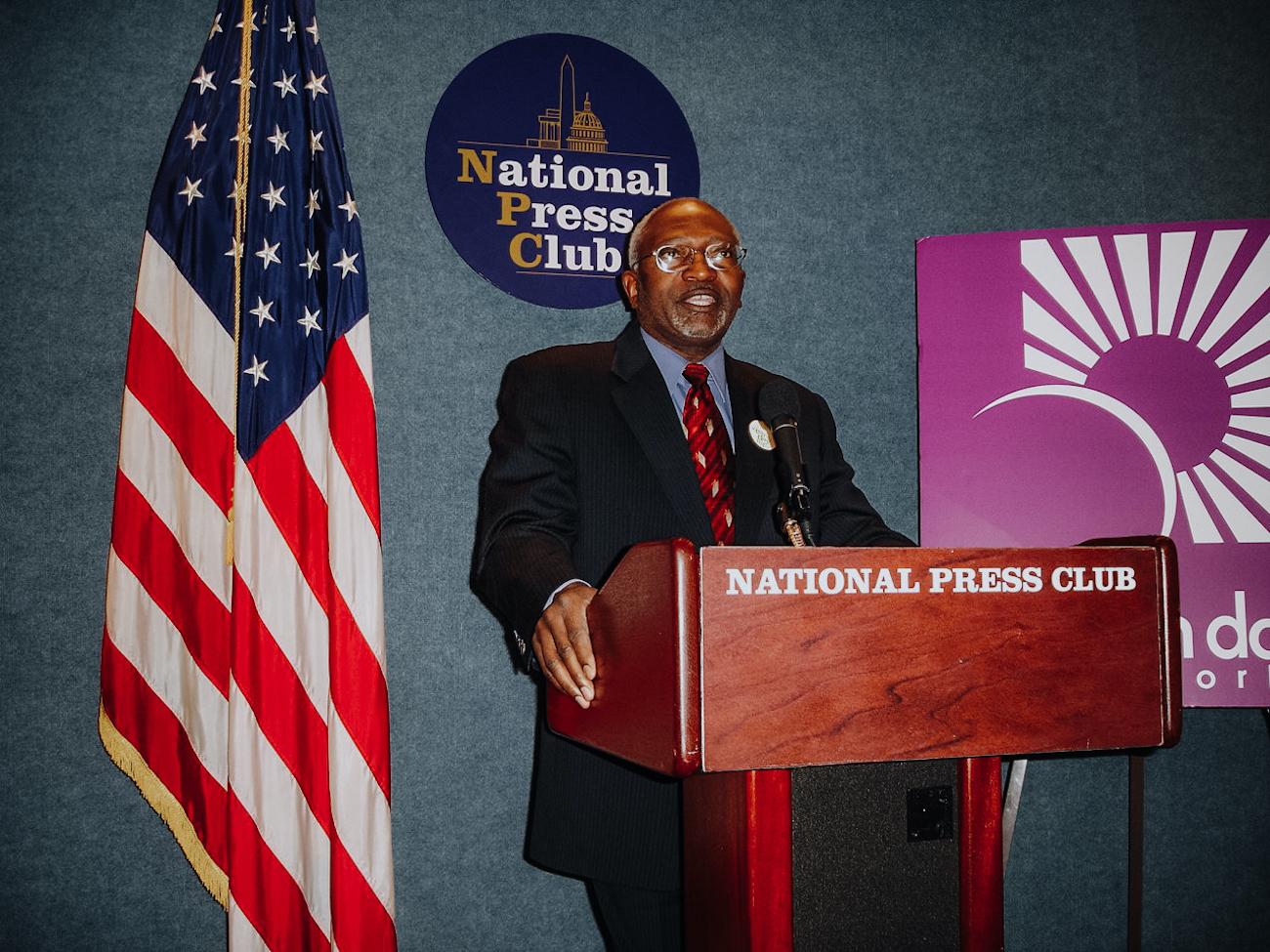
Dr. Robert Bullard, aka the “father of environmental justice,” is currently a Distinguished Professor of Urban Planning and Environmental Policy at Texas Southern University, the former founding Director of the Environmental Justice Resource Center at Clark Atlanta University, and the co-founder of the HBCU Climate Change Consortium.
Dr. Bullard is also the author of 18 books, several of which address the topic of climate justice and racial justice, including The Quest for Environmental Justice: Human Rights, and the Politics of Pollution (with a foreword by Rep. Maxine Waters), Environmental Health and Racial Equity in the United States (along with Glenn S. Johnson and Angel O. Torres), and Unequal Protection: Environmental Justice and Communities of Color.
“Climate change is the number one problem of the 21st century. We sometimes forget that climate change is much more than simply parts per million (of greenhouse gas emissions),” Dr. Bullard said in a 2016 interview with Iowa State University. “It is an equity issue. It [affects] some people directly. The most peculiar aspect of climate change is that the populations that contribute least to the problem of climate change are most likely to feel its impacts. Such disproportionality makes it a serious social justice issue.”
Dr. Beverly Wright
Dr. Beverly Wright is an award-winning environmental justice scholar, sociologist, and the founder and executive director of the Deep South Center for Environmental Justice in New Orleans. The Center works to better the lives of children and families in the Gulf Coast Region of the U.S. who are negatively affected by pollution and the climate crisis.
Dr. Wright has also written several books about racial justice, including Race, Place & the Environment After Hurricane Katrina and The Wrong Complexion for Protection: How The Government Response Endangers African-American Communities, both of which she co-authored with Dr. Robert Bullard.
“[Communities of color] are on the front line of impacts from climate change, living in places where there could be more floods and a higher incidence of different [climate-related] diseases,” Dr. Wright explained in a recent interview with Color Lines. “For poor communities, there’s also not having access to health insurance or medical services. Communities of color are disproportionately affected by all of these things.”
If you are looking for ways to donate your time or money to Black Lives Matter and other antiracist organizations, we have created a list of resources to get you started.
